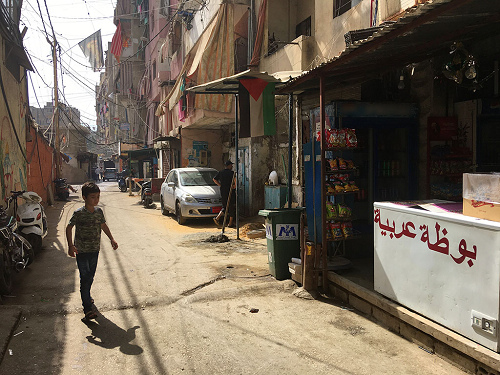Lebanon: better EU resettlement tools needed to help the country deal with refugee crisis
From Syrian refugees on their way to being resettled to Europe to Palestine refugees who have been living in camps for years: members from the civil liberties committee delegation got to speak to many different people during their fact-finding mission to Lebanon on 19-22 September. They were there to assess the situation to help prepare future rules on the resettlement of refugees. They also spoke to representatives of local NGOs and large international organisations.

A delegation from the civil liberties committee visited Lebanon to find out how the country was dealing with the refugee crisis
MEPs are currently working on a complete legislative overhaul of the EU's asylum system. They have also started to discuss an EU Resettlement Framework proposed by the European Commission in July to put in place a common European policy to resettle refugees from countries outside the EU.
The delegation from the civil liberties committee, led by committee chair Claude Moraes, travelled to Lebanon to help understand countries' responses to the refugee crisis. Previously committee members visited Calais, Greece and Turkey.
With more than a million Syrian refugees and hundreds of thousands of Palestinian refugees, Lebanon is now the country with the highest number of refugees per capita. One in four inhabitants is now a refugee. “Lebanon has by far surpassed the efforts of the rest of the EU in its response to the crisis and has coped remarkably well under very difficult circumstances,” said Moraes, a UK member of the S&D group, in a statement after the visit.
The influx of refugees has heavily affected vital infrastructure in the country such as education and sanitation. The limitations on their right to work are leading the vast majority of Syrians into exploitation and poverty. "People are living under appalling conditions, in overcrowded apartments shared by several families in order to afford the rent or even in basement parkings, with no water, toilet or electricity," said Moraes.
Conditions are also very difficult for the 280,000 Palestinian refugees, the vast majority living in 12 camps such as the Shatila camp. They depend on UNRWA for basic services such as education and health.
The EU's role
The EU has allocated more than €776 million to support vulnerable communities in Lebanon since the beginning of the crisis. However, Moraes stressed: “There is an urgent need for the EU to adopt legislative tools that actually work and can contribute to alleviate the demographic pressure on countries such as Lebanon and prevent further destabilisation in the region."
Source: European Parliament
- 374 reads
Human Rights
Fostering a More Humane World: The 28th Eurasian Economic Summi

Conscience, Hope, and Action: Keys to Global Peace and Sustainability

Ringing FOWPAL’s Peace Bell for the World:Nobel Peace Prize Laureates’ Visions and Actions

Protecting the World’s Cultural Diversity for a Sustainable Future

Puppet Show I International Friendship Day 2020

